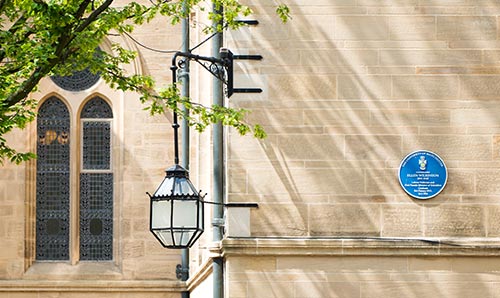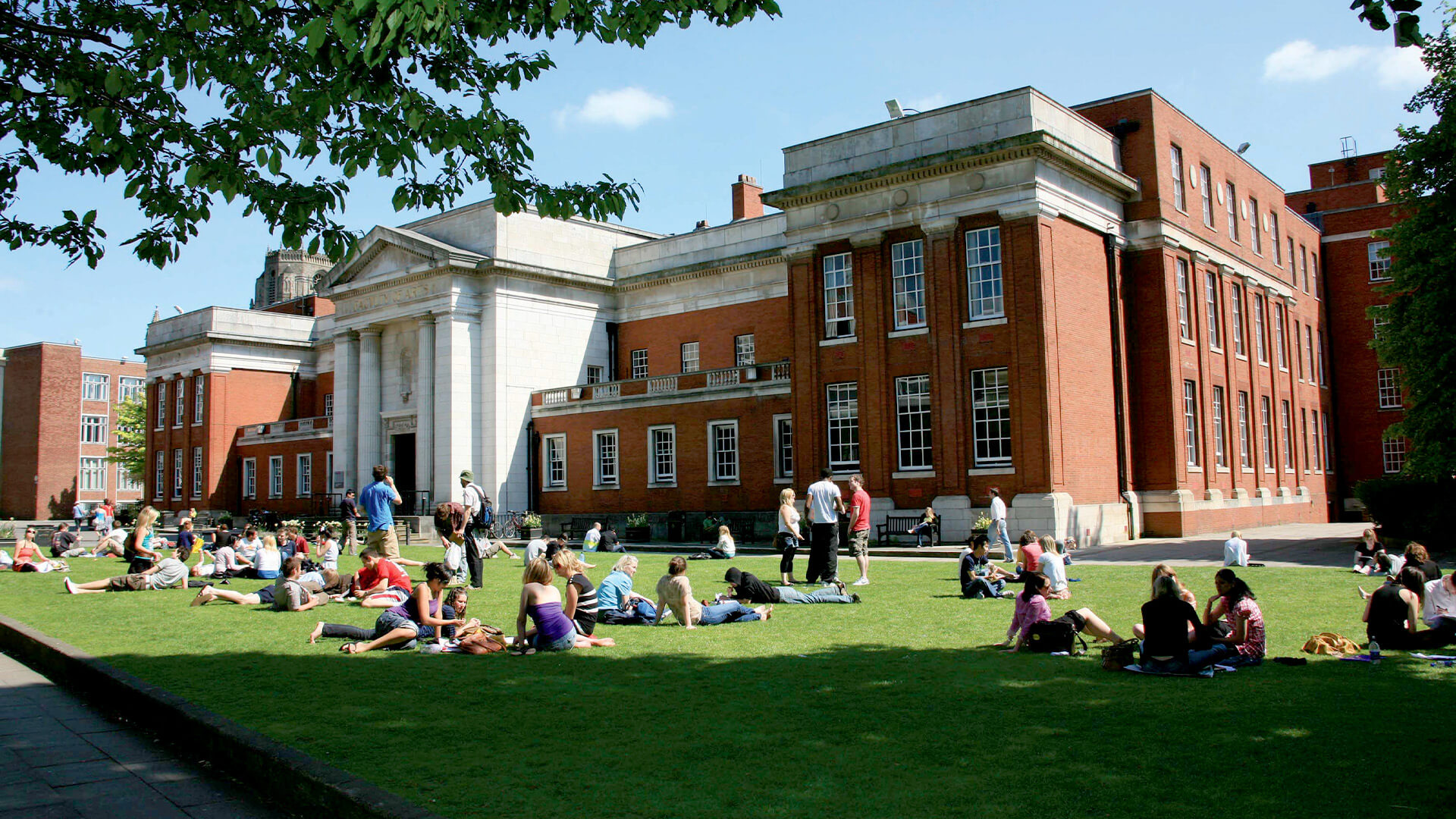History and heritage
The University of Manchester holds a special place in history. Our origins as England’s first civic university are closely linked to Manchester’s development as the world’s first industrial city.
We were formed at the birth of the modern world and our founders invested us with progressive principles and a desire to improve people’s lives through research and teaching. Throughout our history we have led the way and helped shape the modern world through discovery, ideas and knowledge.
We work hard to preserve our heritage, which you can enjoy today by visiting our collections and taking tours of the historic buildings on campus.

Manchester was the world’s first modern industrial city. The history of the University is entwined with the history of our city and region.
The University of Manchester, in its present form, was created in 2004 by the amalgamation of the Victoria University of Manchester and the University of Manchester Institute of Science and Technology (UMIST).
After 100 hundred years of working closely together, both institutions agreed to form a single university, and on 22 October 2004, they officially combined to form the largest single-site university in the UK.
Each has an innovative and inspiring history which we continue to build on, through ground-breaking research and as a centre of educational excellence.
Our achievements
The University of Manchester has a rich academic heritage, with 25 Nobel laureates among our current and former staff and students.
Manchester was the birthplace of the nuclear age, when Ernest Rutherford’s pioneering research led to the splitting of the atom. The computer revolution started here in June 1948 when a machine built by Tom Kilburn and Sir Freddie Williams, known affectionately as ‘The Baby’, ran its first stored program.
It was here at the University that economist and logician WS Jevons formulated the principles of modern economics, and it was at our Jodrell Bank site in Cheshire that a young Bernard Lovell built the world’s largest steerable radio telescope just after World War II.
Great traditions have also flourished in theology, architecture, mathematics, music, law and many other areas.
The catalogue of virtuosity goes on and on. Many of our current academic staff are world-leaders in their fields and include:
- biologist and Nobel laureate John Sulston FRS (Institute of Science, Ethics and Innovation);
- British novelist Jeanette Winterson (Centre for New Writing);
- physicist and broadcaster Brian Cox (Department of Physics and Astronomy);
- professors Andre Geim and Konstantin Novoselov, who were awarded the Nobel Prize in Physics in 2010 (Department of Physics and Astronomy);
- historian and broadcaster Michael Wood (School of Arts, Languages and Cultures).

